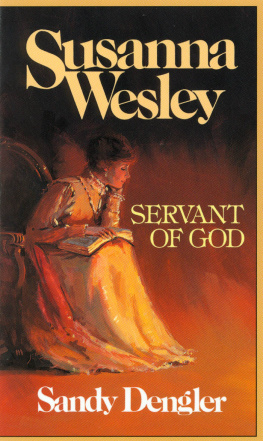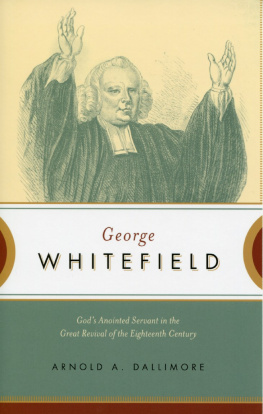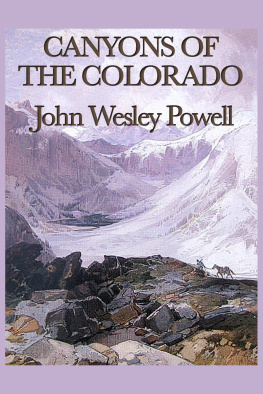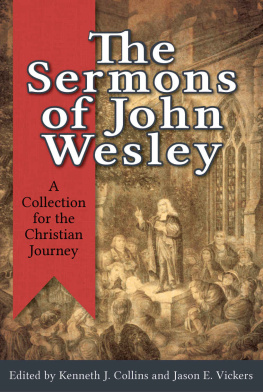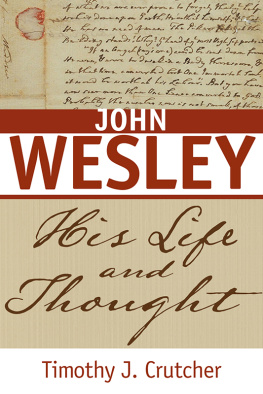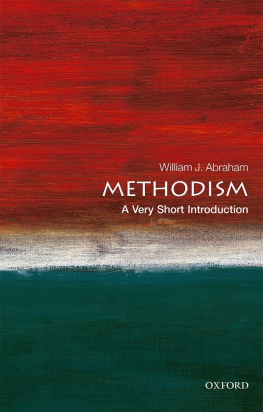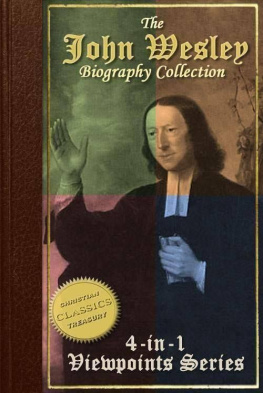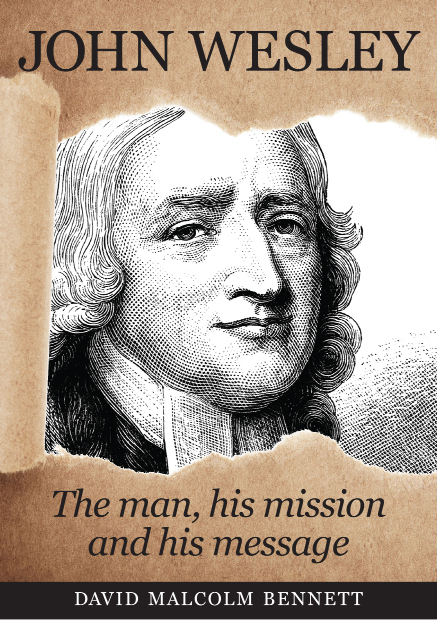The claimed attendance figures at the open-air preaching of John Wesley and George Whitefield are often doubted; they reported that, on some occasions, crowds numbering 20,000 or 30,000 listened to their preaching. It is likely that both men overstated the numbers. However, when Whitefield was preaching in America, Benjamin Franklin estimated that a crowd of 25,000 could all hear him speak. There is no doubt that sometimes thousands gathered to hear the two great preachers. It is my judgement that their estimates were not likely to be more than double the actual figure, and may have been closer than that. I have generally quoted the numbers that they gave. Halve those figures if you wish.
Quotations from John Wesleys sermons are from John Wesley, Forty-Four Sermons (London: Epworth, [1787] 1944). How much these versions differ from his spoken words is impossible to know, but, for the most part, they are all we have to go on. The printed addresses are probably more formal than the spoken sermons.
Much of the dialogue in this biography is drawn from Wesleys writings and the works of other writers. Some of it, however, I have imagined.
David Bennett (November 2014).
CHAPTER 1
The Deliverance
The dream was becoming a little too vivid. John could see the flames, hear the crackling and smell the smoke. Why were nightmares so real? It was almost as if the house was really on fire.
It was the shouts of Fire! Fire! that finally woke him. The five-year-old tumbled out of his bed and found himself faced with thick, black smoke. His brother and sisters were nowhere to be seen. He rushed to his bedroom door, which was already ajar, and peered out. The house, his house, was on fire. The smoke was billowing up the staircase into his room and through it the flicker of flames could be seen down below, creeping up the stairs. This was not a dream. The fire was real and John Jacky Wesley was in grave danger.
Outside the house the neighbours, awakened by the noise, were rushing forward with pails of water to try to extinguish the flames. But it was a hopeless task. The flames had too great a hold.
Also outside Rev Samuel Wesley and his wife, Susanna, were gathering their children around them. They counted them. Seven! Seven? One was missing. Its Jacky, Susanna cried. Jackys not here. Where is he? her voice rising in pitch in panic. Samuel did a hasty recount and clearly one was missing; it was John. Where was he? Surely not still in the house.
The flames were now rapidly ascending, flashing and sparkling as they rose, propelled by a strong wind. The house was clearly lost, but John had to be still inside. How could he be rescued in this inferno? They heard a voice call out from inside, which confirmed he was there. Samuel went through the front door and tried to reach him, but the fire was too fierce and all-encompassing, so he quickly retreated. He made another attempt, but failed again. Susanna, eight months pregnant and unwell, also tried by another route, but it was impossible to go upstairs because of the flames, so she also turned back. She tried again with the same result. Prayer now seemed the only option, so they prayed for their sons deliverance.
Suddenly, a cry went up from the street. There he is! Hes at that window. There at the top! A finger pointed upwards. All eyes followed in that direction and there amidst the billowing smoke, framed in a window, was the tiny figure of John Wesley.
How could he escape? He could jump from the window, but if he did that he would almost certainly hurt himself seriously.
Come here, Will. Get on my shoulders. It was Mr Rhodes, one of the neighbours, a tall man of considerable strength, calling to a companion.
Rhodes bent down right below the window, and after Will had climbed upon his shoulders, tentatively rose to a standing position. But Will fell off. They tried again. This time Rhodes was able to stand to his full height and his companion, though unsteady, managed to retain his position. Then Will stretched out his hands to just below the window, behind which the terrified boy stood.
Reach out to me, Master John. Reach out!
John Wesley, standing on an old chest, looked down and saw the two unsteady figures, one on top of the other, and the ground beneath. He hesitated. He looked back at the smoke and the flames that had now reached the room behind him. He leaned forward, arms outstretched, and fell into Wills grasp and was lowered to the ground.
A few moments later the roof of the house collapsed inwards, away from the boy and his rescuers. John Wesley had escaped only just in time.
The Wesleys were then all taken into a neighbours house. As they entered their temporary shelter, Samuel called them to prayer. Let us give thanks to God! He has given me all my eight children. Let the house go, I am rich enough. They then all fell on their knees in prayer. In the days and weeks ahead the family was housed in various homes of relatives and friends while their house was rebuilt.
It was later believed that the fire had been deliberately lit, seemingly by some of Samuel Wesleys parishioners. It appears that they did not like their local Anglican rectors preaching and they did not approve of his politics, and this was their terrible way of exacting revenge.
On that day, 9 February 1709, the house was destroyed, but John Wesley was saved. His later life was spent spreading spiritual fire throughout Britain, and eventually, through his spiritual successors, fire throughout the world.
John Wesley later described himself as A brand plucked out of the fire (Zech 3:2 & Amos 4:11). And so he was.
CHAPTER 2
The Wesleys
John Wesley was the fourth son and 15th child of nineteen born to Samuel and Susanna. An earlier son had been named John but had died young. The second John, it would seem, was to fill the gap left by his departed brother.
Samuel Wesley was born in 1662 and went to Exeter College in Oxford. He was ordained as a priest in the Church of England in 1689, though he had been raised as a Dissenter. His father and paternal grandfather had been amongst the 2,000 clergy who had been dismissed from their parishes in the terrible Great Ejection in August 1662, when they refused to submit to the new regime governing the Church of England. This effectively meant no parish, no preaching and no income, at least no income from the ministry. Any attempt at preaching could mean a large fine or imprisonment.


